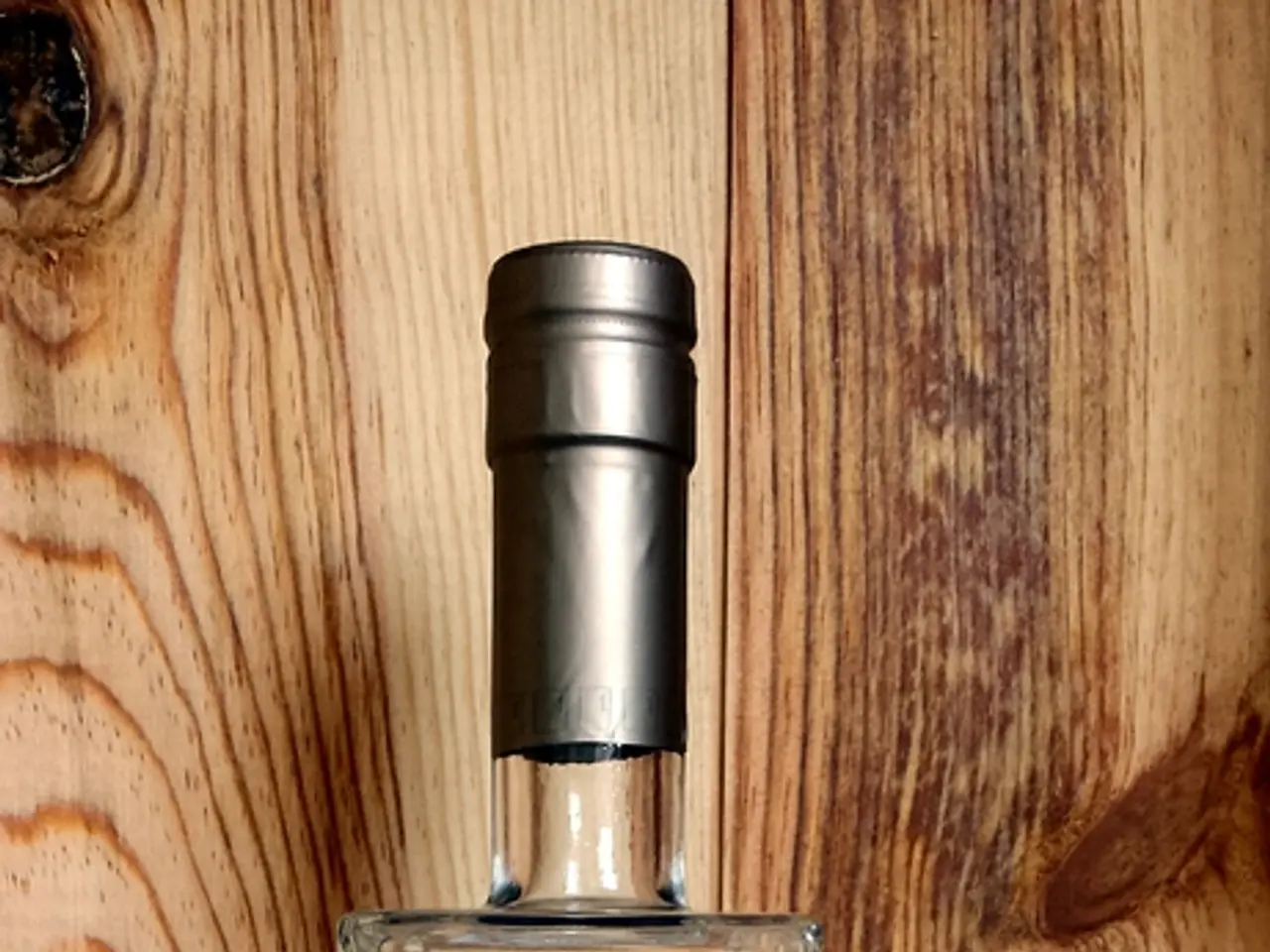Death toll reaches at least 10 in Sochi
In the heart of Sochi, the Cossack Market has been shrouded in controversy following the sale of counterfeit chacha, a traditional Georgian grape-based pomace brandy. The investigation into this matter is gaining momentum, with the focus on uncovering the origins and distribution channels of these potentially harmful products.
The police have taken two vendors, Eteri and her granddaughter Olesya, into custody for two months on suspicion of involvement in the poisoning of citizens with alcohol. The chacha sold at the market was sent for testing, and the trading point where the fatal chacha was sold has been closed.
The Investigative Committee has opened a criminal case for producing, storing, transporting, or selling goods and products that do not meet safety requirements. The Cossack Market is now devoid of half-liter bottles of homemade wine and chacha, thanks to the police's removal.
The investigation has key points of focus. First, tracing back the counterfeit chacha to its manufacturing location or supplier. This may involve examining supply chains, transport routes, and business records linked to vendors at the market. Second, determining whether the counterfeit chacha is produced in clandestine facilities, repurposed from other spirits, or mixed with harmful substances.
Identifying the sellers involved in distributing counterfeit chacha is another crucial aspect. This includes whether the sales are isolated or part of a broader organized scheme. Assessing reported cases of illness or complaints connected to the counterfeit products is also essential, informing public health responses.
Lastly, reviewing applicable local laws regarding counterfeit alcohol production and sales, and coordinating with law enforcement for prosecutions, are crucial steps in this investigation.
The tragedy unfolded when Allesev Orlov raised the alarm after his 69-year-old grandmother Tatiana, his 42-year-old uncle Alexander, and his wife Tatiana, who had come from the Moscow region, drank the chacha and subsequently fell ill. Another family, the Smetanins, experienced the deaths of Darja and Maxim while returning home on the train after consuming chacha bought from Eteri.
Preliminary investigation shows that at least 10 people have died from alcohol poisoning caused by the alcohol sold by the accused. It was previously established that Eteri had already been fined for selling substandard alcohol. Galina Orlova, Tatiana, and Alexander Mukhin, and Darja and Maxim Smetanin were among the victims.
As the investigation continues, statements from the 71-year-old seller named Eteri about the production and sourcing of the chacha are being taken by investigators. Olesya was arrested specifically for selling counterfeit chacha. Irina Volk, a local official, confirmed that the detainees were selling homemade alcoholic products.
As the community grapples with this tragedy, authorities are working diligently to ensure the safety of consumers and bring those responsible to justice. Updates on the investigation's progress are expected to be released by the local regulatory authorities and investigative bodies.
- The focus of the investigation has expanded beyond the counterfeit chacha to encompass workplace-wellness, as the victims were reportedly employees who consumed the alcohol during work hours.
- The medical-conditions of the victims have been confirmed as chronic diseases, with symptoms exacerbated by the consumption of the counterfeit chacha.
- Although cancer has not been found to be directly linked to the counterfeit chacha, the容易出现respiratory-conditions and digestive-health issues among the victims raise concerns about possible long-term effects.
- Regular eye-health check-ups have been advised for anyone who has consumed the counterfeit chacha, as there have been reports of blurred vision and eye irritation among the victims.
- The impact of the counterfeit chacha on hearing has not been definitively determined, but it has been suggested that prolonged consumption could lead to hearing loss and tinnitus.
- With growing public awareness, health-and-wellness advocates are reminding individuals of the importance of maintaining a balanced diet, which includes nutrition, to combat the potential health risks posed by the counterfeit chacha.
- To counteract the adverse effects of the counterfeit chacha, fitness-and-exercise programs have been suggested to improve overall health and strengthen the immune system.
- Concerns over sexual-health have arisen due to the possible contamination of the counterfeit chacha with harmful substances affecting reproductive health.
- Mental-health professionals are being consulted to support the victims and their families, as they cope with the trauma and grief caused by the counterfeit chacha.
- The men affected by the counterfeit chacha have been advised to pay close attention to mens-health issues, as the consumption of impure alcohol may lead to complications such as liver damage.
- As part of the comprehensive investigation, skin-care specialists are examining samples of the chacha to determine if it could cause skin-conditions, further endangering consumers.
- The tragedies caused by the counterfeit chacha have resulted in accidents, such as car-accidents due to drunk driving and fatalities during emergencies when responders had consumed the counterfeit chacha.
- In light of the events, general-news outlets are emphasizing the importance of informing the public about the dangers of counterfeit alcohol and encouraging vigilance in identifying potential threats.
- The investigations into crime-and-justice, specifically involving unfair trade practices and endangerment of public health, continue along with the pursuit of justice for the victims and their families.




